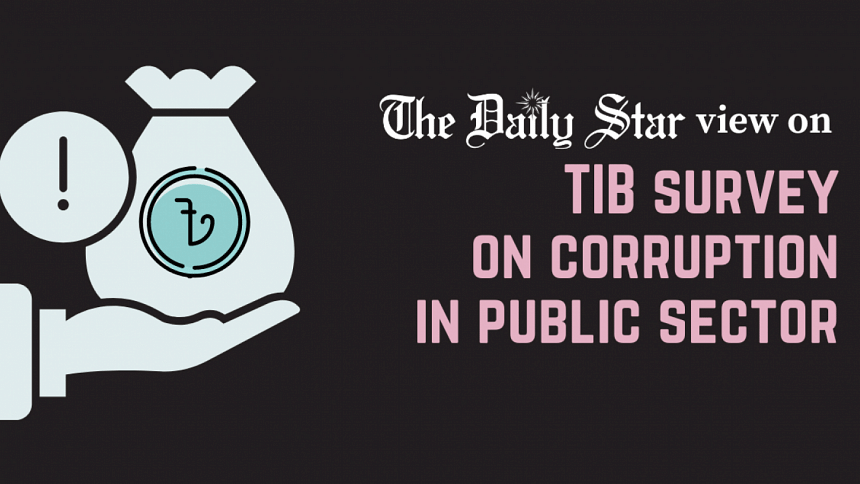No sign of ‘zero tolerance’ for corruption

The government is often seen to boast of its zero tolerance to corruption. But as the latest Transparency International Bangladesh (TIB) survey on corruption in service sectors shows, an extremely high level of tolerance is being shown to corruption by state officials. Out of the 15,454 homes surveyed by the TIB, about 71 percent said they had to endure corruption while trying to get public services last year. Corruption means bribery, extortion, embezzlement, deception, negligence of duty, nepotism, etc – for which, according to the TIB, they had to pay an estimated Tk 10,830 crore in bribes, which is 5.9 percent of the revised budget of FY 2020-2021. These practices were found rampant in 22 service sectors that are considered to be "riddled with petty corruption."
In other words, the TIB report put a number on the suffering of citizens who have to cross a lot of invisible hurdles before they can get a service from public officials, whose salaries are paid from their taxes. At least 70.5 percent of households reported having to deal with graft when getting passport-related services, while 68.3 percent had to face the same when getting the services of BRTA. Ironically, 74.4 percent of respondents had to face corruption when seeking the services of law enforcement agencies. If such lawlessness is demonstrated by those tasked with enforcing the law of the land, it proves how embedded corruption has become in our system. And the authorities are clearly in no rush to hold these corrupt officials to account, either.
From the look of things, there seems to be a lot of institutional tolerance for corruption, as there is a lot of barriers to preventing it or punishing corrupt officers. For example, section 41(1) of the Public Service Act 2018 requires law enforcers to get prior approval from the government or relevant agencies to detain government officials in criminal cases. The High Court recently declared this provision illegal, but the verdict has been stayed by the Supreme Court till October 23, meaning that the legal barrier to prosecuting state officials for crimes, including corruption, will continue to be in a place for some more time.
As for the TIB report, it has been found that citizens were less likely to face demands for bribes when seeking digitalised public services. While it is recommended that all public sectors utilise digitalisation wherever possible to make things easier and faster for citizens, this is no answer to corruption. Corrupt officials have shown considerable ingenuity in finding new methods of continuing their practice. Therefore, the Anti-Corruption Commission must be allowed to play a leading role in finding and prosecuting them. We urge the higher authorities to match their zero-tolerance commitment with stern action to combat corruption and establish accountability in all service sectors.

 For all latest news, follow The Daily Star's Google News channel.
For all latest news, follow The Daily Star's Google News channel. 






Comments